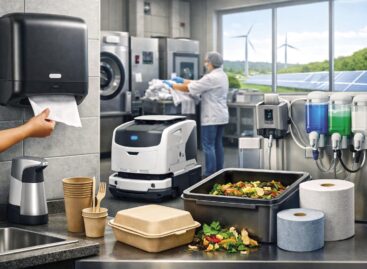The heart of Viennese coffee culture: Julius Meinl and the heritage of coffee
Vienna, the home of the famous coffeehouse culture, also temporarily hosted the world’s largest coffeehouse in 2008, which was realized by Julius Meinl, the world-famous Viennese coffee merchant and roaster. On the Ringstrasse, between the Museum of Natural History and Art History, the giant cafe emphasized not only the importance of love for Viennese coffee, but also the value of preserving culture and traditions. Drinking coffee, which has become a part of life, is a tradition spanning generations in Vienna, and one of its most defining figures is Julius Meinl – Index writes.
Julius Meinl Street: The past and future of coffee in one place
 Julius Meinl street in Vienna’s Ottakring district – formerly Neuseagasse – is not just a road, but the emblematic center of Viennese coffee culture. Julius Meinl, one of the world’s best-known coffee brands, established its headquarters and processing plant here. The facade of the building is simple and understated, but behind it lies a serious heritage and expertise. Opposite the building is the Meinl Museum and the coffee academy, where visitors can follow the journey of coffee and gain an insight into the world of professional coffee making.
Julius Meinl street in Vienna’s Ottakring district – formerly Neuseagasse – is not just a road, but the emblematic center of Viennese coffee culture. Julius Meinl, one of the world’s best-known coffee brands, established its headquarters and processing plant here. The facade of the building is simple and understated, but behind it lies a serious heritage and expertise. Opposite the building is the Meinl Museum and the coffee academy, where visitors can follow the journey of coffee and gain an insight into the world of professional coffee making.
Coffee in the name of sustainability
Sustainability and social responsibility are extremely important to Julius Meinl. According to the company’s CEO, Marcel Löffler, the company works closely with coffee growers in South America and Africa to minimize the ecological footprint of coffee production and preserve soil fertility. The company follows sustainability standards that are based on the shared vision of the Global Coffee Platform (GCP) and aim to protect the climate and make coffee cultivation technologies sustainable.
Julius Meinl has also launched a special program called “Julius Meinl Generations” in which they support sustainable agricultural methods on their plantations in Uganda and Colombia. In the framework of the program, farmers are trained in environmentally friendly production techniques that ensure proper management of the soil and the preservation of natural resources.
Related news
Related news
Lidl is building a new administrative and logistics centre in Straubing
🎧 Hallgasd a cikket: Lejátszás Szünet Folytatás Leállítás Nyelv: Auto…
Read more >







